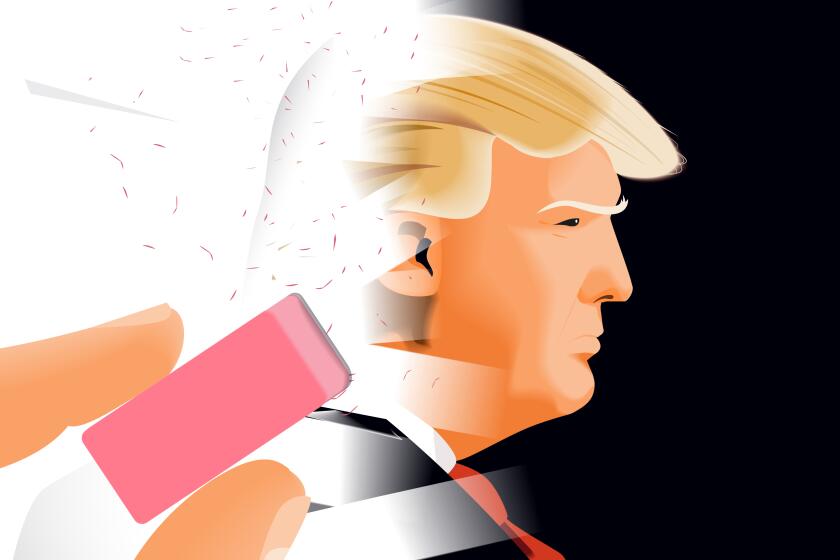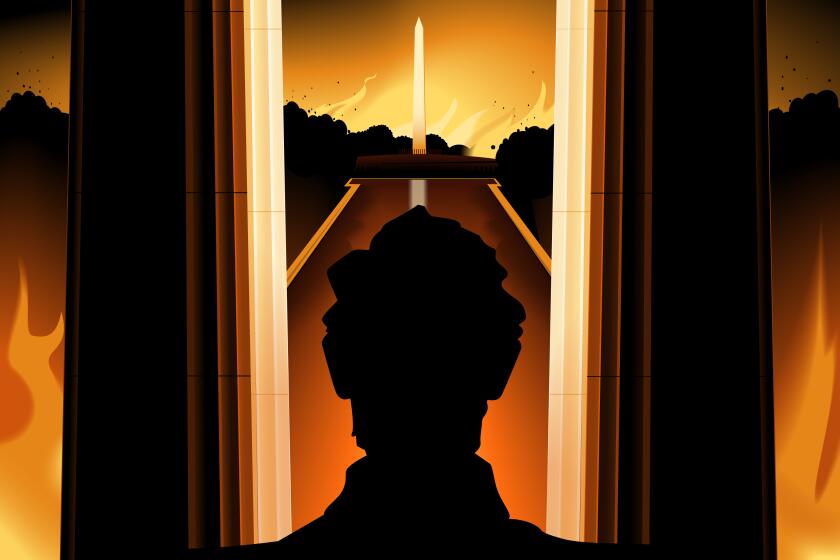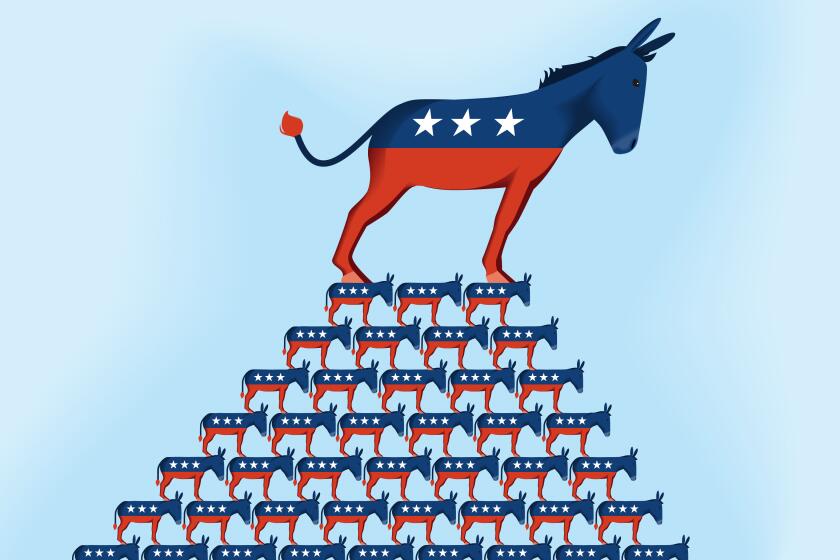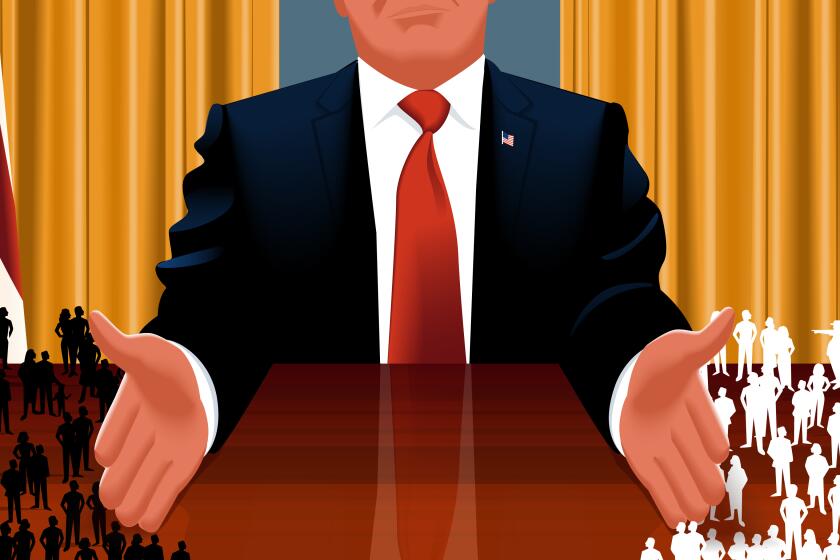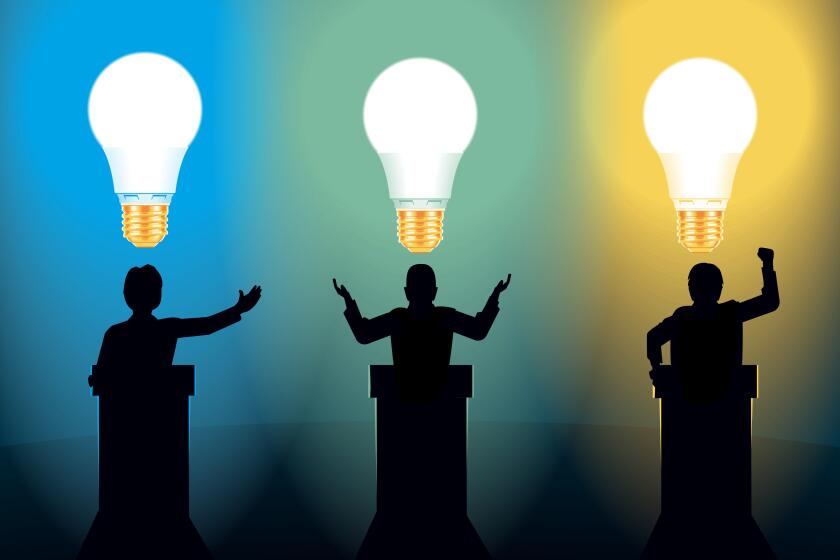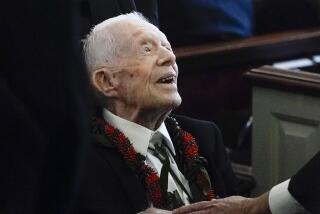How old is too old to be president?
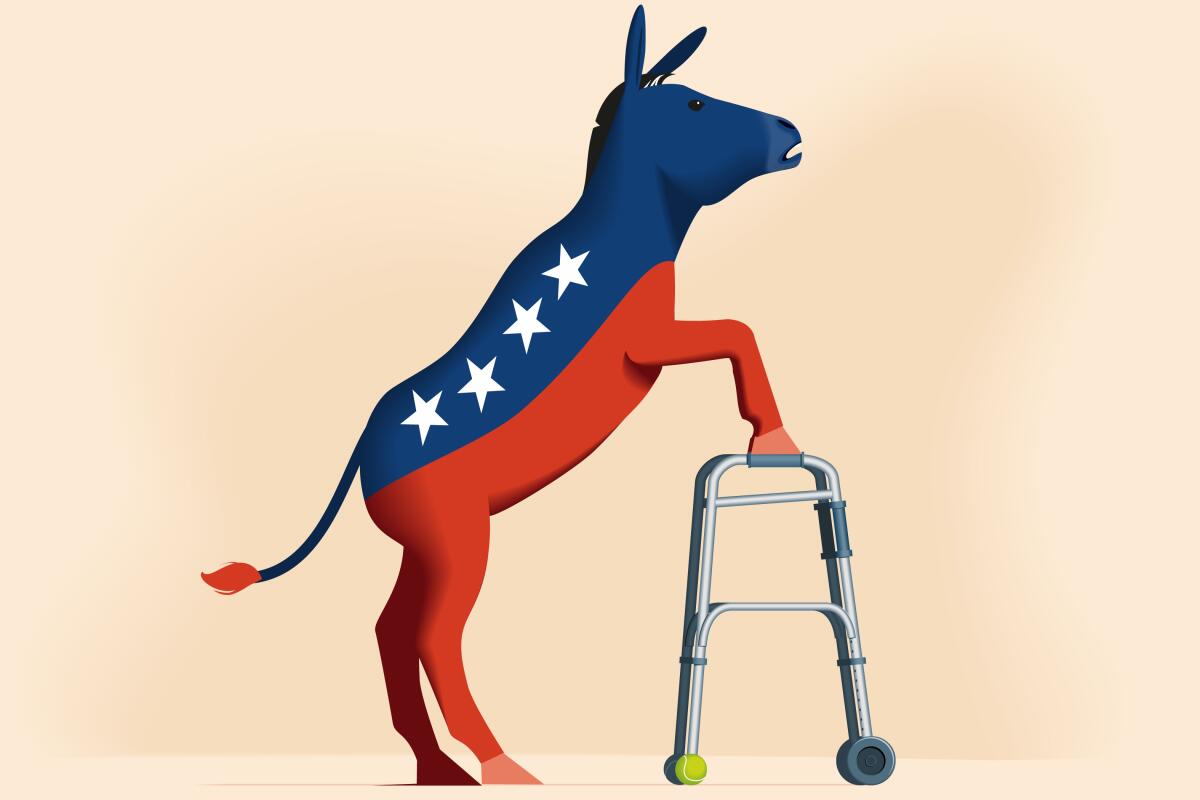
- Share via
If Elizabeth Warren were to be elected president next year, she would be 71 on Inauguration Day. Joe Biden would be 77. Bernie Sanders would be 79.
In other words, if elected, any of the three leading candidates for the Democratic nomination would become the oldest person ever to begin the job, breaking the record set in 2017 — by Donald Trump.
The candidates’ age raises two questions. First, if any of them are elected, will their bodies and their minds be up to the task for the next four or eight years? The question has for the most part escaped serious examination, partly because it is borderline offensive to question an older person’s fitness based on the number of birthdays rather than on any particular evidence of infirmity or decline. But it is probably avoided as well out of anxiety over what the answer may be. (It hasn’t become a serious subject of discussion even in the aftermath of Bernie Sanders’ recent heart attack.)
The second question has less to do with the candidates themselves than it does with us, and what Americans in general, and Democrats in particular, are feeling about the country.
Age has long seemed a natural fit with conservatism, and therefore with Republican candidates rather than Democrats. A maxim, attributed to various luminaries including Edmund Burke and the king of Sweden, teaches that a young person who is already a conservative has no heart and an older person who is still a liberal has no head.
Accordingly, Americans in the modern era have generally chosen old Republicans and young Democrats as their presidents.
Ronald Reagan, the icon of conservatism, was just shy of his 70th birthday and the oldest person to assume the presidency when he took the oath in 1980. Dwight Eisenhower was a grandfatherly 62 (his tenure was marked by a heart attack and a stroke). George H.W. Bush was 64. To their supporters they symbolized wisdom and experience.
Democrats, meanwhile, went for guys in their 40s — John F. Kennedy, Bill Clinton, Barack Obama. Their hallmarks were youthful vigor, can-do optimism — and overconfidence.
Kennedy brashly underscored the shift from Eisenhower’s presidency to his own.
“Let the word go forth,” he said, “from this time and place, to friend and foe alike, that the torch has been passed to a new generation of Americans.”
Along with the septuagenarians, there is a young, brash and comparatively inexperienced generation of candidates in this year’s Democratic field, but likely voters seem generally unimpressed with them so far. Leftward-pushing rank-and-file Democrats, young and old alike, seem to prefer Sanders and Warren. Moderates are sticking for now with Biden. The three of them have created an iron ceiling that the Julian Castros, Pete Buttigieges, Tulsi Gabbards and Tim Ryans have been unable to breach.
The result is a debate among candidates with viewpoints shaped by 20th century experience. It’s still a debate; Sanders is adored among a swath of decidedly post-baby boom voters for articulating time-honored democratic socialist programs. Warren is too for her pugnacious denunciations of corporate interests. Pitted against Biden, they represent the restore-versus-advance argument at the core of this year’s Democratic contest.
But they seem a bit out of time. Let the word go forth, they seem to be saying, that the generation of Americans born during or just after World War II is not giving up this torch until you pry it from their cold, dead hands.
If elected, any of the three leading candidates for the Democratic nomination would become the oldest person ever to begin the job, breaking the record set in 2017 — by Donald Trump.
It may be that Democrats have begun to leaven all that focus on youthfulness with a respect for wisdom and experience. California went that route. Voters in the 1970s chose 36-year-old Jerry Brown for governor and eventually tired of him and sent him into the political wilderness. But when the state faced fiscal meltdown in 2010, voters were less interested in youthful iconoclasm than a steady hand. They brought back Brown, then 72.
At his inauguration he made a point of noting that he was up to the job, age notwithstanding, by introducing his 99-year-old aunt.
“God willing,” he said. “The genes are good.”
It is true that Americans live longer now than in previous generations. But not that much longer, even if the genes are good. Human life expectancy today still hovers around the biblical norms of three-score years and 10 and four-score years — 70 to 80. Modern science and medicine may add another decade or two for many, but — is America ready for a president in his or her 80s?
There will surely come a point when voters focus on the age of their chosen candidates, so shouldn’t that point come sooner rather than later — before November 2020, for example, or before any Trump vs. Democrat debate, or before the primaries?
Considering both the merits of experience and the perils of age may mean doubling down on support for one of the current top three, and that’s fine. In the age of Trump, when experience is belittled and wisdom is in exile, Sanders, Biden or Warren may be just what is needed.
But while there is still time, it’s probably not a bad idea to take a second look at the next tier of candidates, and consider whether any of them are more likely leaders for post-Trump America.
More to Read
A cure for the common opinion
Get thought-provoking perspectives with our weekly newsletter.
You may occasionally receive promotional content from the Los Angeles Times.

